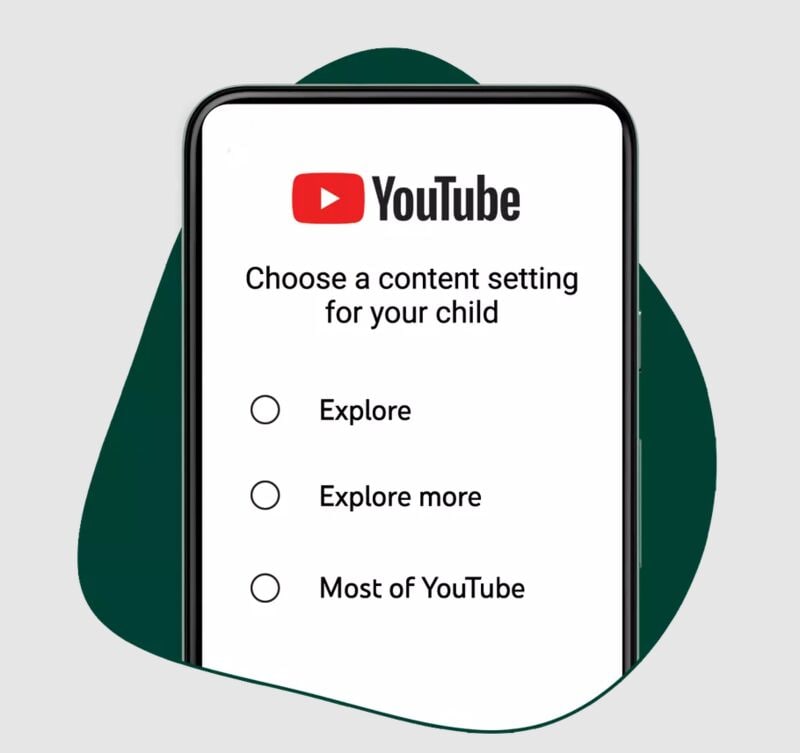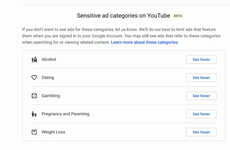
YouTube's Supervised Experiences Give Parents More Control
Riley von Niessen — February 24, 2021 — Social Media
YouTube has announced Supervised Experiences, which are intended for parents with children who have outgrown the cartoons, crafts, and other child-friendly content on the Kids app, but who still want to ensure their older children are viewing suitable content.
The update comes with a selection of restrictions that parents can choose to add to their accounts. The filters are segmented into three main categories: Explore, Explore More, and Most of YouTube. The first level is meant for kids aged 9 and up, and features content that is deemed suitable for that age bracket. Explore More features fewer restrictions and is intended for those 13 and up. The final tier, Most of YouTube, is suited for those over the age of 13, and shows all content other than videos that are age-restricted.
YouTube is currently doing a beta rollout of the feature, which it plans to launch more broadly over the next few months.
Image Credit: YouTube
The update comes with a selection of restrictions that parents can choose to add to their accounts. The filters are segmented into three main categories: Explore, Explore More, and Most of YouTube. The first level is meant for kids aged 9 and up, and features content that is deemed suitable for that age bracket. Explore More features fewer restrictions and is intended for those 13 and up. The final tier, Most of YouTube, is suited for those over the age of 13, and shows all content other than videos that are age-restricted.
YouTube is currently doing a beta rollout of the feature, which it plans to launch more broadly over the next few months.
Image Credit: YouTube
Trend Themes
1. Parental Streaming Filters - YouTube's Supervised Experiences give parents greater control over the content their children consume online.
2. Age-appropriate Content - Age-based restrictions and filters are a growing trend in online platforms that cater to young audiences.
3. Personalized Parental Controls - Parents are demanding more customized and specific options for controlling their children's access to digital content.
Industry Implications
1. Online Streaming - Streaming platforms are developing better features to help parents guide their children's media consumption.
2. Edtech - EdTech platforms can benefit from using similar filtering technologies to develop learning materials that are appropriate for students of different ages.
3. Consumer Electronics - There is a growing demand for parental control features in electronic devices such as smartphones, tablets, and smart TVs.
1.3
Score
Popularity
Activity
Freshness























